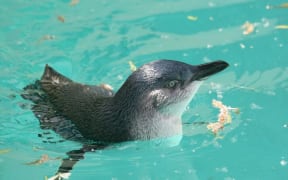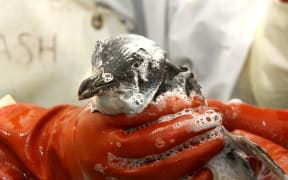A citizens' science initiative is helping keep little blue penguins out of harm's way during the construction of a seawall extension in Taranaki.
Nga Motu Marine Reserve Society and Project Hotspot provided data on penguin numbers and volunteer inspections are being made at Urenui Beach while the wall is being built.
Urenui Beach plays host to about 50 of the birds, which nest in specially-built boxes and under the baches.
New Plymouth District Council infrastructure manager David Langford said the council was concerned about the impact construction of the boulder wall would have on the penguins, so it sought help.
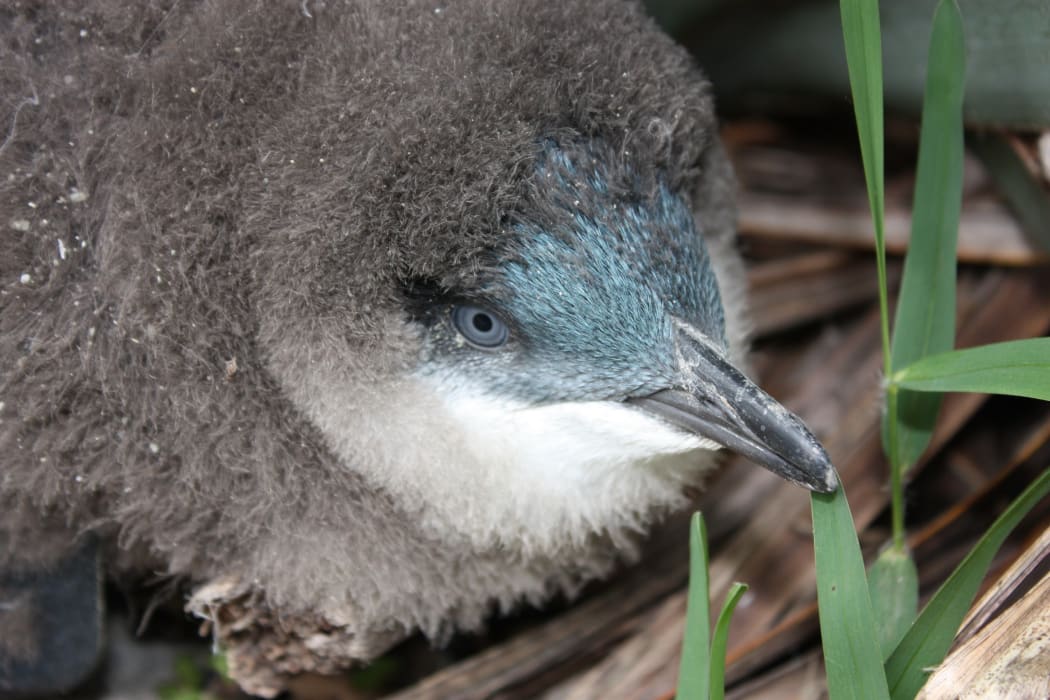
A little blue penguin chick. Photo: Supplied / Halema Jamieson
"We made contact with the Nga Motu Marine Reserve Society and asked them to go out and do a survey.
"They came back and confirmed that penguins were there and then we started to plan accordingly for how we were going to manage our construction around those little guys."
Project Hotspot is a Taranaki-based project that uses citizen science to support the conservation of threatened species. Its members helped with the penguin spotting and number crunching.
Coordinator and marine ecologist Emily Roberts said the council had agreed to delay construction of the seawall when it was made aware of how much penguin activity there was.
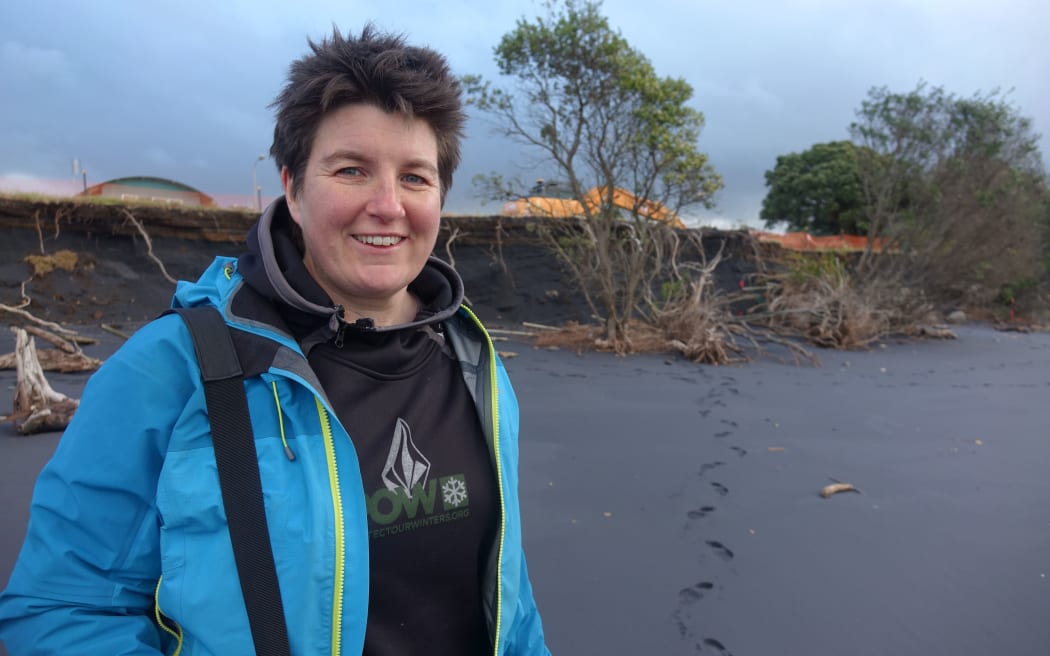
Project Hotspot coordinator Emily Roberts. Photo: RNZ / Robin Martin
"The closest nesting boxes are only a few metres away from the wall and there'll be daily penguin checks to make sure there are no penguins nesting in the rocks that are going to be used to construct the wall."
Project Hotspot had video of the nesting penguins:
Little Blue Penguins are New Zealand's smallest penguin and they raise their chicks between July and November, and the young are just about to leave the nest for the first time.
Ms Roberts said planning for the seawall extension had also been altered on the citizen scientists' advice so that it included a ramp for the penguins to climb to their nesting areas.
"Penguins are really good climbers but for the large boulders they'll struggle to get over anything that has a higher vertical height of about 25cm.
"So as a consequence they used to come up the steps that used to be here for access, and they'll make sure that access is back there again which is good news for the penguins and the locals."
Urenui Beach Camp owner Teresa Hayston and her son Aidan, 9, volunteered to make sure the penguins are not in the construction zone.
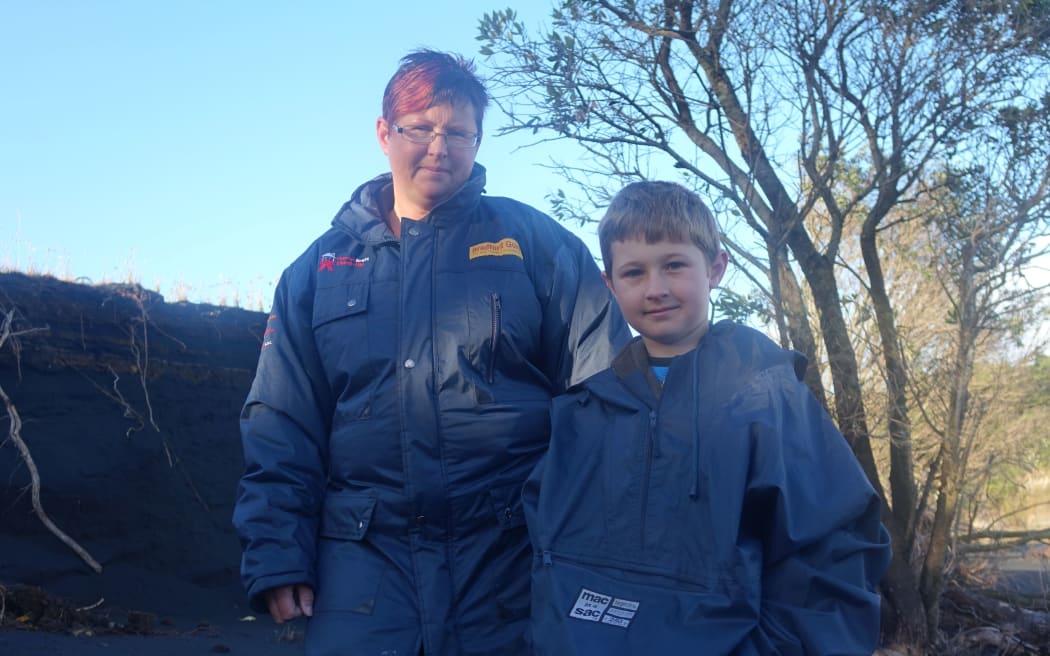
Teresa Hayston and her son Aidan help look after the nesting boxes. Photo: RNZ / Robin Martin
"So each morning before the contractor begins we just do a walk past where he is working for the day and just make sure there's no penguins nesting.
"And especially when he starts stockpiling the rocks to make the wall because they've had problems getting up the wall since all the erosion happened DOC was concerned they may start to try to nest in the rocks."
Mrs Hayston said the penguins were the undisputed stars of the camp.
"Everyone just loves the penguins, they're just wonderful. The bach on the corner, number one, they've actually got a perspex square in their floor in their lounge so that when people stay in the bach they can lift up the matt and see what's happening under the bach."
The penguins come up on the beach after night fall and head to sea to gather food early in the morning, leaving a trail of tell-tale tracks much to the delight of visitors.
But one downside is the fishy smell, and bach owners usually have to do good clean-up after nesting season.
There are up to 100,000 little blue penguins in New Zealand but they are vulnerable to feral cats, stoats and dogs, and officially considered at risk and declining in number.
Mr Langford said the birds had influenced the council's whole approach to the seawall project.
"We've adjusted the hours we are actually working on the project so we're only working in the hours the penguins aren't active and moving around on the beach and we've got quite a strict process for doing prestart inspections before each shift starts work."
He said construction of the seawall would take six to eight weeks and penguin inspections would be done throughout its build.

